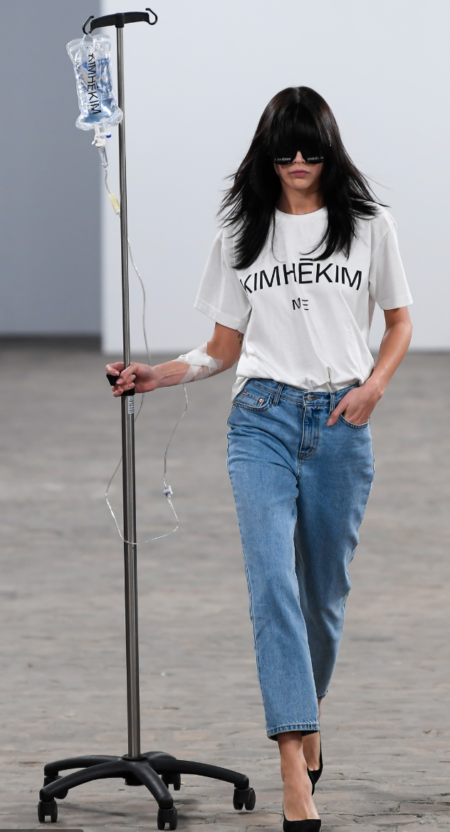Being that New York City long ago adapted to the U.S. curse of falling in line with catering to the political correctness that became part and parcel of cancel culture, the Fashion Week that took place there in early September was relatively staid in terms of looks and runway presentation, steering well clear of such topics as illness, mental or otherwise (as though the town doesn’t want to broach in any way that it is the epicenter of that). It was during Milan Fashion Week, with Jennifer Lopez closing the Versace show, that served as the segue into Paris Fashion Week, where the controversial decisions the industry once prided itself on cropped up without hesitation. As though it was as close of a return as we could get to the days when it was chic to be and say “heroin chic” (which now you can’t because it’s insensitive whilst there’s an epidemic going on).
From the unfortunate appearance of Cardi B in front of the Eiffel Tower acting like a representative embarrassment of U.S. bravado and inability to speak a foreign language to the bombastic bum rush of lithe movements at the Issey Miyake show, Paris Fashion Week left much to be talked about (even Balmain’s tailored to the 00s playlist in accordance with the style of the new collection). But what got tongues wagging most of all was the Kimhekim display of models walking down the catwalk sporting IV bags as accessories (just for the show, one imagines, not for sale as part of the outfit). In some cases even wearing t-shirts that read “SICK” to really drive home the point, the deadpan pageantry drew almost as much vitriol as Gucci’s use of straitjackets during their Milan presentation. At which time one of Gucci’s own models, Ayesha Tan Jones, protested with a sign that read: “Mental Health Is Not A Fashion.” The words, written on her hands, were not pre-orchestrated with Gucci, which later claimed the show was merely a statement created “to represent how through fashion, power is exercised over life, to eliminate self-expression.” Whatever that means. Apart from Alessandro Michele having to quickly churn out some designs for the fall line that have nothing to do with what was paraded onstage.
Luckily for Gucci, Kimhekim came along to upstage them without bothering to say that the clothes featured in the show were just a commentary on society. The IV bags in particular were what conjured an internet outburst of enraged judgment. Called a “reprehensible concept to those who suffer from illness,” fashion’s freak flag has once again been put at half-mast these days as it must seek to find new ways to shock without actually offending, therefore provoking thought, however superficial. In this sense, maybe a more fitting sartorial assessment of now would have been for the models to lumber as though brain-dead down the runway (though one model, Leon Dame, at the Maison Margiela show kind of did) sporting lobotomy scars and tools in hand.
Because, at this point, we’re all wondering where fashion can really go next in terms of pushing buttons but only with a barely there touch. Leaving one to wonder why the delightfully non-controversial potato sacks that Lucy and Ethel got tricked into thinking were haute couture haven’t yet been tried. Or is that spud appropriation? Perhaps we’ll find out next season.






















